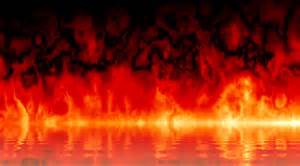Walmart vs. Bangledesh
I have heard the story about Walmart and the lives lost in Bangladesh, my thoughts are how amazing folks writing the articles performed their due diligence. Did they look up customs in India, did they have formal training on customs, doing business in India or etiquette in Bangladesh.
http://www.kwintessential.co.uk/resources/global-etiquette/bangladesh.html
http://www.bakertillyinternational.com/media/36800/doing_business_in_bangladesh-23apr08.pdf
http://www.osec.ch/sites/default/files/BG_1101_E_Businessguide-Bangladesh.pdf
Based on the above articles it really isn't clear the amount of input and/or the steps required to ensure oversight in India.
What are your thoughts?
Last week, a fire tore through a garment factory in Bangladesh. With the emergency exits locked or blocked, hundreds of workers -- mostly women -- were trapped inside the nine-story factory. 112 people were killed.
And in the ashes of the fire, a local community leader discovered the burned labels of Walmart-brand clothes.
Walmart is claiming it has no responsibility for the deaths, even though it waspurchasing garments made in the very factory that burned down. Worse, Walmart knew the risk to workers. Inspectors working for Walmart gave the factory “high risk” and “medium risk” safety ratings just last year, and this year’s follow-up report was never performed.
Tell Walmart it must join an independent fire safety inspection program supported by Bangladeshi and international labour unions, to prevent tragedies like this.
In the wake of this disaster, Bangladeshi garment workers are taking to the streets. They are demanding that brands take responsibility for fire safety conditions in factories. Walmart has a key role to play in meeting the workers’ demand for a safe workplace, and we can join together to demand that Walmart act.
Walmart is the largest retailer in the world, and the largest buyer in Bangladesh. If Walmart joined the fire safety inspection program already adopted by PVH (owner of Tommy Hilfiger and Calvin Klein) and German retailer Tchibo to ensure that all its suppliers enforced basic safety regulations -- and then worked with suppliers to ensure that they were followed -- it could raise the standard for working conditions across Bangladesh, and, in the process, prevent the potential injury or death of thousands of workers.
Or Walmart could brush this off as nothing more than a minor PR disaster. The company -- which said it ended its relationship with this supplier over the tragedy -- could simplymove on to the next rock-bottom supplier, and the next, leaving more tragedy in its wake.
But Walmart is nothing without its customers and potential customers. That's why it is up to us, using our power as citizen-consumers, to pressure Walmart to change and force improvements in Bangladesh.
Click here to add your name to our petition to Walmart to sign onto the fire safety inspection program that other international brands have already signed.
Just over 100 years ago, a nearly identical story played out in New York City, at the Triangle Shirtwaist Factory. A fire broke out, and in the chaos, the workers found all the exits to be locked. 146 people, mostly immigrant women, died that day.
In the wake of that tragedy, citizens rallied together and forced factory owners to adopt important safety guidelines to protect workers. Let’s band together now to make sure real change comes out of last week’s disaster too, by pressing Walmart to protect workers throughout its supply chain.

Comments
Post a Comment